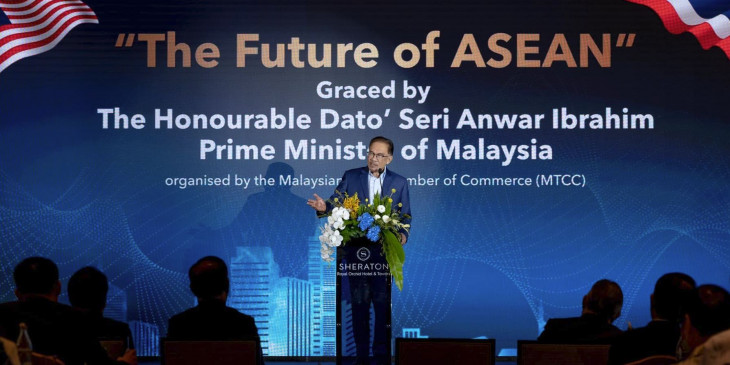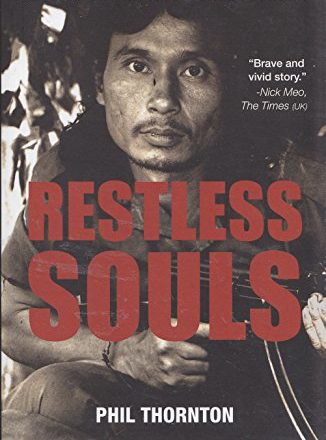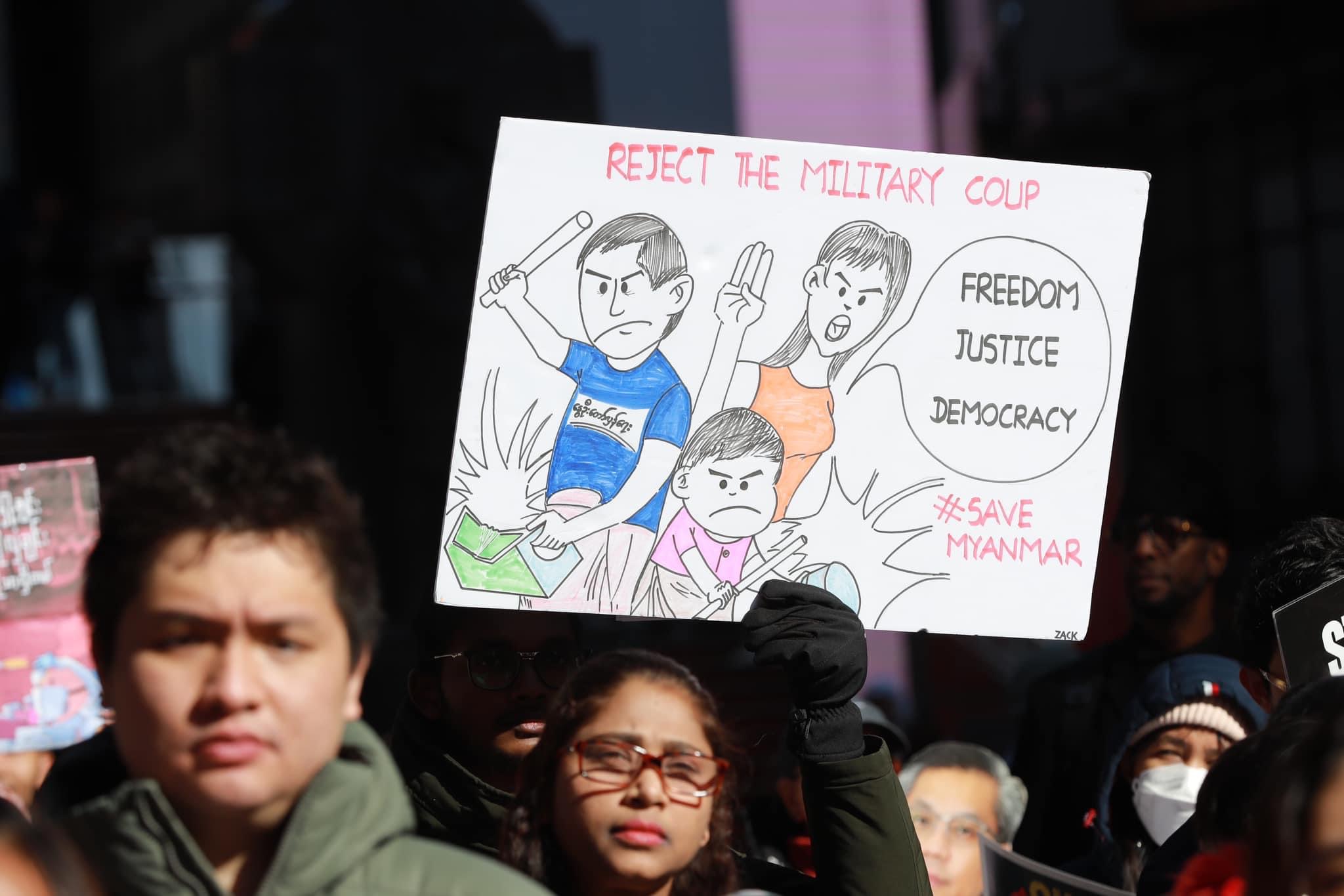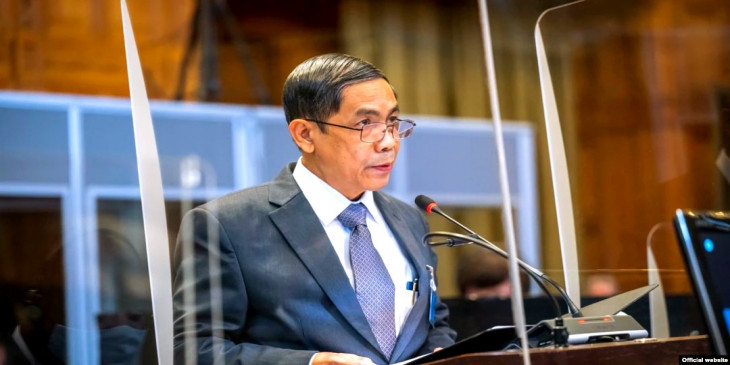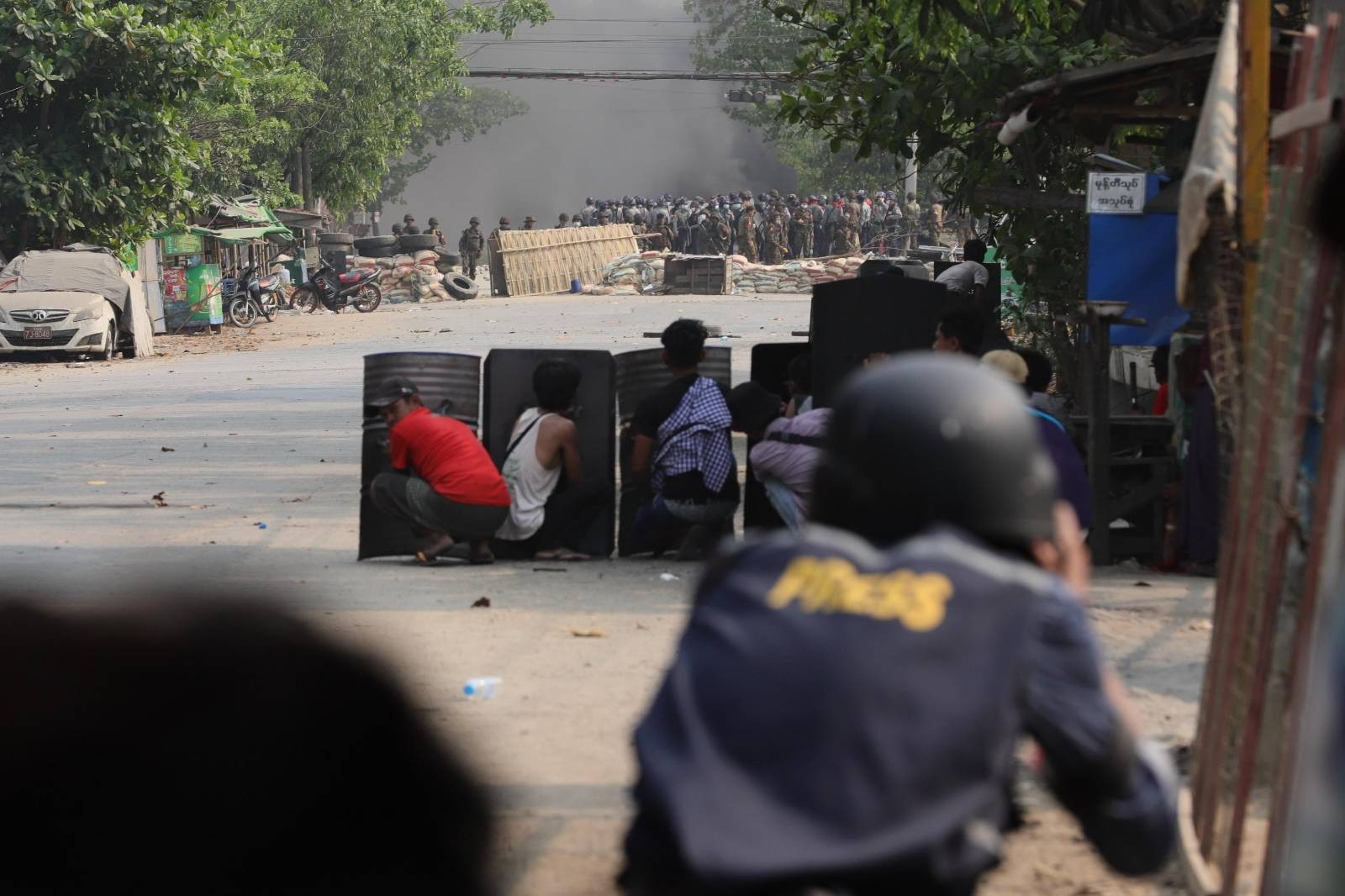The Prime Minister of Malaysia Anwar Ibrahim spoke about the crisis in Burma and how it is affecting ASEAN on Feb. 10, during his first official visit to Thailand as Malaysian PM. “We should carve Myanmar out for now, and I don’t think the Myanmar issue should frustrate our moves. It would be ideal if we could have just a strong consensus in giving a strong message to the Myanmar regime,” he said. Prime Minister Anwar Ibrahim also urged Burma’s military to stop committing atrocities against its people, The Straits Times reported. Members of ASEAN differ in their views on the crisis in Burma. Malaysia’s former foreign minister Saifuddin Abdullah met with members of Burma’s National Unity Government (NUG). Thailand and Cambodia have met with members of Burma’s military coup regime.
Podcast: Phil Thornton on “Restless Souls: Rebels, Refugees, Medics and Misfits on the Thai-Burma Border”
Australian journalist Phil Thornton discusses researching and writing his book “Restless Souls: Rebels, Refugees, Medics and Misfits on the Thai-Burma Border.”
DVB English is on-demand via Facebook, Twitter, YouTube, Instagram, Tiktok, Substack, SoundCloud, Spotify, Stitcher, TuneIn Radio, Anchor FM, Amazon Music, Audible, Apple & Google Podcasts.
Reversing Myanmar’s internal strife: A response to Thitinan Pongsudhirak
Guest Contributor
Igor Blazevic
Thitinan Pongsudhirak, professor and senior fellow at the Institute of Security and International Studies at Chulalongkorn University, published an op-ed in the Bangkok Post under the title Reversing Myanmar’s internal strife. Let me quote from it as there are many good observations made byThitinan Pongsudhirak on Burma’s National Unity Government (NUG) in it.
“Broadening and deepening the NUG-led government will require elite consensus, mass support, inclusive and popular participation, administrative capacity and a measure of centralisation. The NUG has to be able to exert authority over its vast majority of supporters, loyalists and citizens on its side of the country. Observers near and far would be considered about Myanmar’s political breakup, which would worsen the scourge of drugs, transnational crimes, human trafficking, illicit trade and broader instability.”
“Indeed, the Tatmadaw’s biggest advantage, apart from an overwhelming force of arms, is that it is the authority in power which can be dealt with, able to provide a semblance of territorial integrity and cohesion despite facing a nationwide uprising against its rule. Thus the NUG must be able to show that it can hold Myanmar together if and when the SAC [State Administrative Council = military junta] loses its grip on power.”
Let me add a few comments.
In principle,Thitinan Pongsudhirak is right. One of our biggest obstacles to gain bigger international support is the fear that if the junta is defeated that Myanmar will become ungovernable chaos. So true, Myanmar’s anti-junta alliance needs to project capacity to govern. This is all about perception. The NUG and EROs (Ethnic Resistance Organizations) alliance need to look like a credible alliance which is politically committed to pursue the COMMON project of Federal Democratic Myanmar.
However, the problem is how to project capacity to govern with such limited resources and no substantial assistance from either ASEAN or from the West. I see that as an intellectual task for all of us who are assisting Myanmar’s Spring Revolution. We need to find a way to break this “chicken – egg situation” – what should come first, and we should persuade regional and international actors that the only way to solve the Myanmar crisis is to put more “eggs” below the anti-junta “chicken”.
Internationals have this prejudice (or assumption) that without military there will be total chaos in Myanmar. A war of everybody against everybody. That is why they want to push both the NUG, EROs and the junta to “all-inclusive national dialogue of all stakeholders”. That is also why well-minded, well-informed and supportive authors likeThitinan Pongsudhirak are advising – the NUG should show capacity to govern, it should show capacity of command and control.
Partly that is the truth, we all know that we should do that. But on the other side, how one can project authority when you have very low financial and material resources (while the junta still has huge revenues from for example gas) and, for very objective reasons, also have limited human capacity (huge number of people with capacity to lead are imprisoned and tortured when arrested, other leading people are without proper teams, everybody is in huge insecurity, families and property of people who are openly connected with the NUG are immediately targeted, etc.).
I think that we should not primarily build the narrative we use in interaction with internationals on democracy and human rights language. Nobody among Myanmar’s neighbours and in Asia will support the anti-junta alliance because it is promising democracy. Not even democratic countries, the U.S., E.U., U.K., Australia will go far in supporting the anti-junta alliance because the people of Myanmar are struggling and sacrificing for the restoration of democracy.
Instead, we should argue: the junta’s futile effort to impose its rule through brutality and terror is driving Myanmar to what you are all afraid of – to collapse the country in war of everybody against everybody. The NUG and EROs together are the only stakeholders who can re-establish stability and security – but they are able to do so only if neighbours, ASEAN and the West stand by them and help them overcome current disproportionality in resources.
Instead of criticizing the “chicken” that it is not delivering enough “eggs”, ASEAN and the democratic West should stand by the NUG and anti-junta alliance that is aligned around the NUG and invest in the prospect of stability that they can deliver.
This is the only pragmatic and real-politics approach to solve the deepening Myanmar crisis and escalating conflict. Otherwise Myanmar’s neighbours, ASEAN and broader Asian region will get what they have been afraid of the most – failed state fractured in 5-7 territories controlled by different armed groups with chronic instability and ongoing low intensity conflict, with permanent humanitarian crisis, with collapsed economy, and with increase in “scourge of drugs, transnational crimes, human trafficking, illicit trade and broader instability.”
Igor Blazevic,
Senior Adviser at the Prague Civil Society Centre and lecturer at the Educational Initiatives Myanmar
———————-
This commentary refers to article Reversing Myanmar’s internal strife by Thitinan Pongsudhirak
Junta Minister Ko Ko Hlaing in Rakhine State to receive 30 signed affidavits for ICJ case
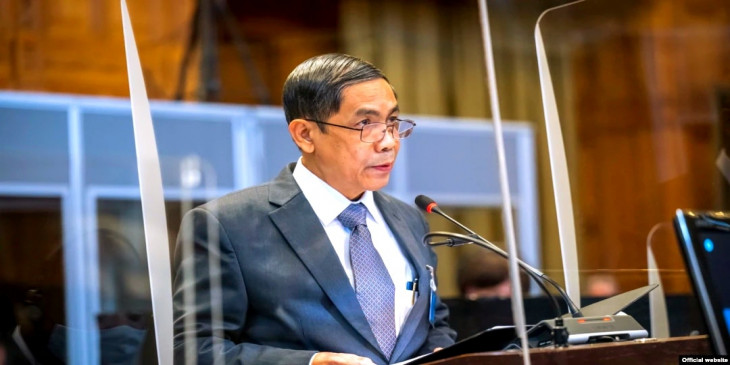
Thirty residents of Buthidaung and Maungdaw townships – including Buddhists, Muslims and Hindus – have been ordered to sign affidavits by the junta’s Minister of International Cooperation Ko Ko Hlaing. A delegation led by Ko Ko Hlaing arrived in Rakhine State on Feb. 5 to pick up 30 signed affidavits to take with him to the International Court of Justice (ICJ), according to locals. The affidavits confirm what they stated they had witnessed during the Burma Army’s violent campaign of “security clearance” operations against Rohingya in 2016-2017, which many governments have termed genocide. “We were investigated at a Sittwe hotel in 2020. They told us to sign an affidavit to assure our statements were correct in order to submit them to the International Court of Justice. There was no new investigation. We were not the witnesses of the violence and we ran when we heard the sound of gunfire,” said a Rohingya resident of Maungdaw who participated in the investigation. Ko Ko Hlaing attended The Gambia v. Myanmar ICJ hearing in July 2022. All four of Burma’s objections to The Gambia bringing this case under the Genocide Convention were rejected by the ICJ on July 22, 2022.
International Press Institute renews calls to support press freedom in Burma
The International Press Institute (IPI) called on the international media to renew its support for press freedom in Burma. Since the 2021 military coup, a full scale crackdown against the media was launched, by shutting down newsrooms and by arresting journalists or forcing them to flee their homes into hiding. Four journalists have been killed since the coup, all due to their reporting on the country over the last two years. “The international community must renew its commitment to Myanmar and protect and defend the courageous journalists who are risking their lives to report on the regime’s ongoing human rights abuses,” said Scott Griffen, the IPI deputy director. Despite the risks, news outlets and journalists in Burma continue to document the continuing human rights violations, atrocities and war crimes being committed by the military.
Chin National Army kills four in raid on police station; Dozens of undocumented Burma nationals arrested in Thailand
FROM THE DVB NEWSROOM
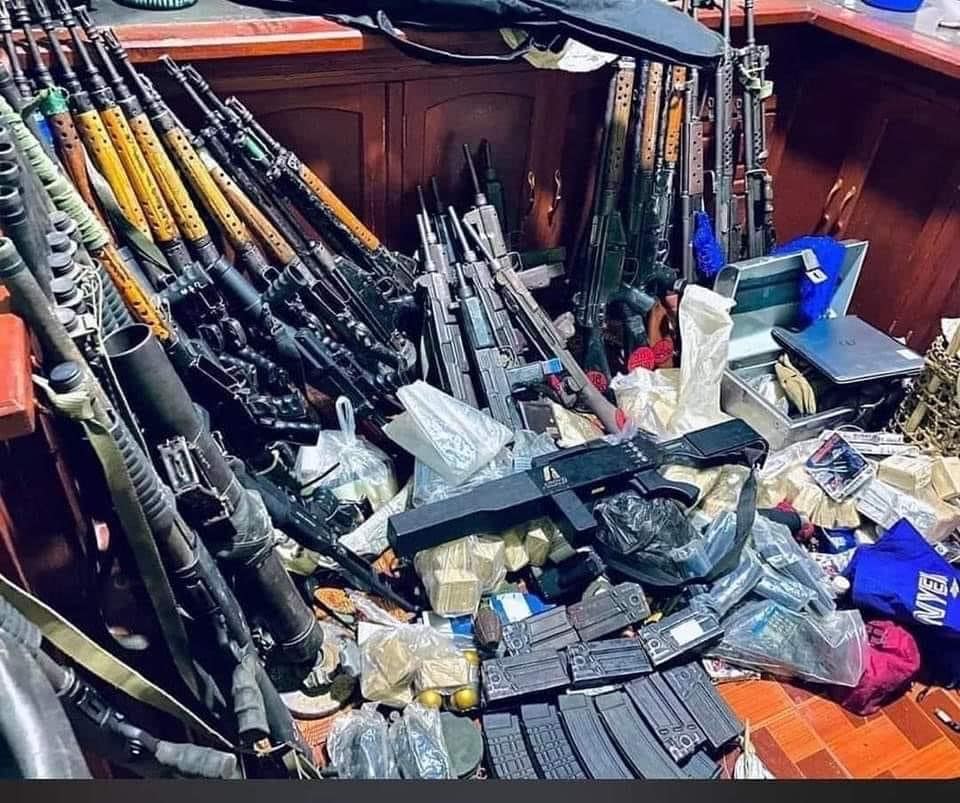
Chin National Army launched raid on police station; kills 4
Four Burma Army soldiers were killed during a Chin National Army (CNA) raid on the main police station in Thantlang Township, Chin State on Feb. 9. The junta launched airstrikes in retaliation. “One from our side was killed and another one was injured,” a CNA official told DVB. Thantlang is one of the 37 townships where the junta has imposed martial law.
Dozens of undocumented Burma nationals arrested in Thailand
A total of 44 undocumented Burma nationals were arrested by Thai authorities on Feb. 8, Thai media reported. Thirty-three undocumented Burmese nationals who have been hiding at an old garage in Songkhla province were arrested after locals informed Thai authorities about them. On Feb.7, 11 Burma nationals working as street vendors in Bangkok were arrested. Those arrested claimed they earned 1,000 or 1,500 baht ($29-44 USD) per day working as street vendors. Siamrath Thai news reported that those arrested will be prosecuted under the Immigration Law because they entered Thailand illegally and don’t possess documents that allow them to work or open a business.
Junta attempts to woo the KNU’s leadership
The junta sent a letter to the Karen National Union (KNU) on Feb. 6 urging it to order its armed forces not to commit “bad acts.” The letter stated the junta cannot tolerate “violent acts” such as demolition of bridges built for regional development, torching of government buildings, shooting inside villages and fighting the Burma Army. The junta said it is willing to discuss the delivery of humanitarian assistance and hold meetings with the KNU. The junta claimed that 1,095 attacks have taken place against military buildings, businesses, and telecom towers in Karen and Mon State as well as Bago Region since the coup.
News by Region
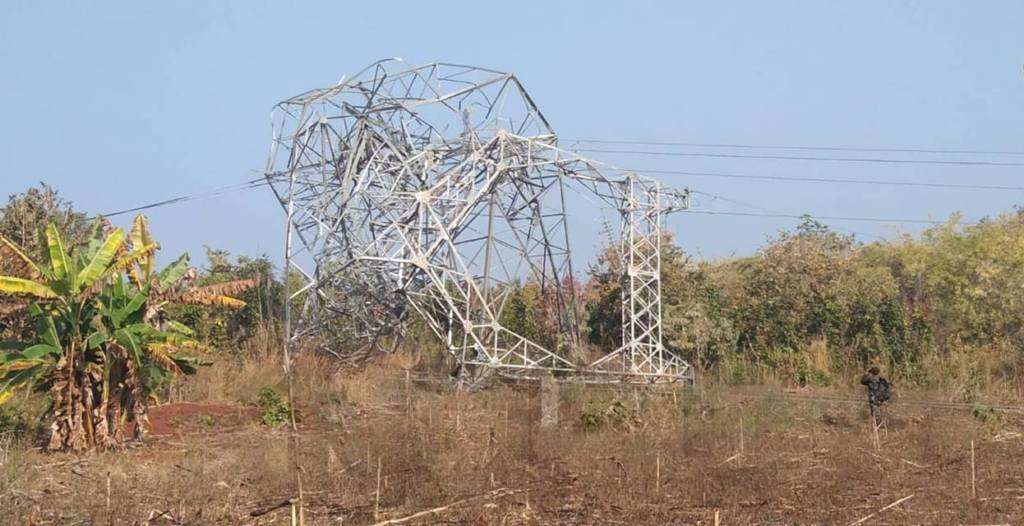
KARENNI—The Karenni Nationalities Defence Force (KNDF) claimed that it recently blew up nine towers providing electricity to Naypyidaw. The KNDF released images of the destroyed towers. “The electricity that is only provided to a certain group of people must not last forever,” its message stated.
MANDALAY—At least 30 suspected resistance fighters were arrested in Mandalay city on Feb. 7-8. Regime forces arrested a man on a motorcycle, then another 15 were arrested on Feb. 7. At least five more people were arrested on Feb. 8. “We still don’t know how many people have been arrested [in total]. The junta arrested them at a specific location,” Htet Aung, a spokesperson for the arrested resistance fighters, told DVB. Search operations are still underway in Mandalay. Some young people who are not affiliated with resistance forces have been arrested, according to the Voice of Mandalay – a local news outlet.
RAKHINE—Khaing Thu Kha, spokesperson of the United League of Arakan/Arakan Army (ULA/AA), told DVB that the Central Court of the ULA/AA gave the death penalty to the manager of a store in Sittwe on Feb. 3. A woman working as a sales clerk at the store was murdered there on Aug. 15, 2022.“The regional level of the Central Court of the Arakan Government made the final decision on the murder case,” Khaing Thu Kha said. The trial began in September 2022. The man sentenced to death will be allowed to appeal the ruling at the ULA/AA’s Supreme Court, according to Khaing Thu Kha.
SAGAING—One person was killed and five others were injured after an explosive planted by a group detonated near Alal Kyun village, Kanni Township on Feb. 8. “They planted landmines to attack Pyu Saw Htee militias but an accident occurred. A comrade was killed instantly and five others are receiving medical treatment. This occurred because we have no modern weapons and we are still relying on handmade Tumi rifles and explosive devices. I’m sorry for them. We’ve been expecting new weapons for so long. Including this comrade, 18 of our members died because of these accidents,” a spokesperson of the group said.
YANGON—Regime forces have begun arresting owners of stalls selling petrol in Dagon Seikkan, South Dagon, and Hlaing Tharyar townships. “They raid the stalls when they need money, claiming the stalls are illegal and unlicensed. They threatened the stall owners with charges. They demand to be paid K600,000–K800,000 ($285 to 380 USD) if the owners don’t want to go to jail,” a resident of Dagon Seikken Township told DVB. “They simply arrested stall owners at the spur of the moment in order to get money,” said a resident of South Dagon. Owners of petrol stalls in Yangon’s satellite townships, where residents primarily commute on motorbikes, may now have to close their businesses. “I learned of the arrests. I closed my shop because I am worried about being arrested. As a result, we are having difficulties surviving,” a petrol stall owner explained. According to locals, several petrol stall owners paid fines, but those who didn’t were arrested.


